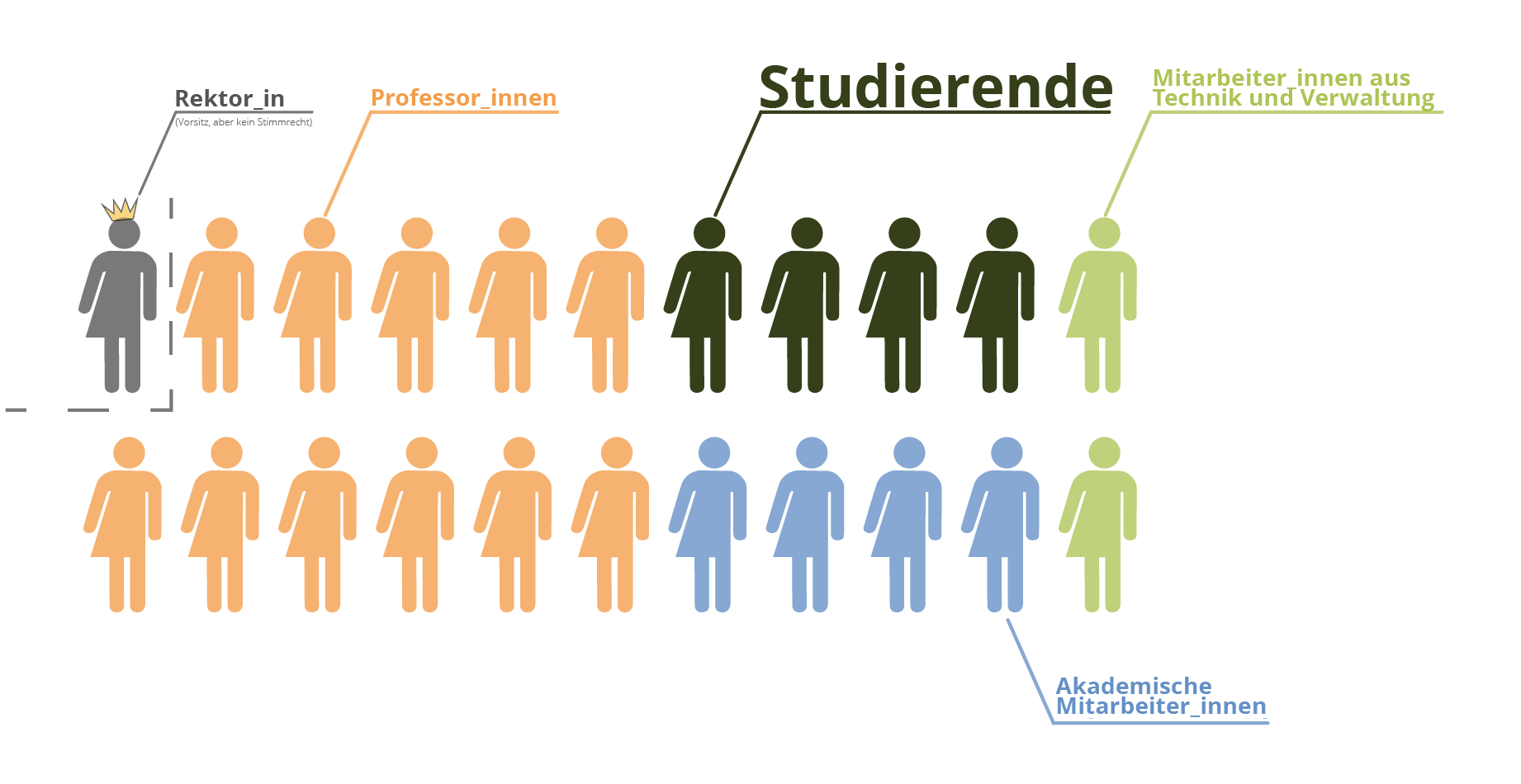What
are
we
voting
for?
Faculty student council (FSR)
The faculty student council (FSR) is your representation at your faculty and the first point of contact in any case of problems during your studies. During the freshmen week the FSR will give you orientation at TU Dresden. Besides organizing many events like game nights and parties the FSR offers you useful tips and services like a collection of exams or material rent.
Up to 25 members elected by you make up the FSR, they usually meet once a week. The FSR members in turn send delegates to the student council (StuRa) and appoint student representatives for several faculty committees.
Faculty council
The faculty council is the highest and directive committee at a faculty. At the monthly meetings, the main organizational, financial as well as personnel matters are discussed and decided on. Among other things, study documents developed in the study commission are approved and nominations for the professorial chairs are organized.
The dean holds the chairmanship of the committee. Besides professors and representatives of the non-professorial teaching staff, the administrative staff and the equal opportunity commissioner, there are also students elected by you in the faculty council.
School Committee
Similar to the faculty council, all member groups from the department meet in the School Committee. This means that, in addition to the student representatives, professors, academic employees and other employees School Committeefrom technology and administration also sit on this committee. In addition, there is also the equal opportunity representative of the school.
Depending on the regulations of the school, the School Committee has different tasks. It can, for example, decide on department-wide study programs or on the further development of the school.
Senate
The senate is responsible for all academic matters concerning teaching, studies, training and research, if they apply to the whole university and are of fundamental importance. It is the highest committee for university policies.
The rector of the university holds the chairmanship, yet he does not have voting rights. The 21 members with voting rights comprise the status groups of the professors, the non-professorial teaching staff, the administrative staff as well as the students. In total there are 4 student representatives and their substitutes in the senate, all of them elected by you. There are also several senate committees doing the groundwork for the senate, to make the work of the senate itself more efficient. Students are a part of that, too, although they are not elected but appointed by the student council instead.

Extended senate
Besides the senate there is also the extended senate. This committee doesn’t meet as often, though. It is responsible for electing and deselecting the rector as well as for the resolution of changes in the basic principles of TU Dresden.
The rector holds the chairmanship. Like in the senate, he has only an advisory role here, just like the vice-rectors, the chancellor, the deans and the equal opportunity commissioners. The extended senate contains the 21 members with voting rights of the senate as well as the same number of representatives from the status groups mentioned above. Like in the senate, you elect the 4 student representatives as well as their substitutes for the extended senate.
Equal Opportunity Officers
Equal opportunity officers are present at various levels of the university. Directly elected are the representatives of the faculties and the divisions. Any member of the faculty or division can become the Equal Opportunity Officer. This means that students can also run for office.
Equal opportunity officers are members of the faculty council or school committee by virtue of their office and are also represented on appointment committees. In addition, the equal opportunity officers are contact persons at their level for problems and questions in the field of equal opportunity work and organize and support projects and events within the scope of their possibilities.

